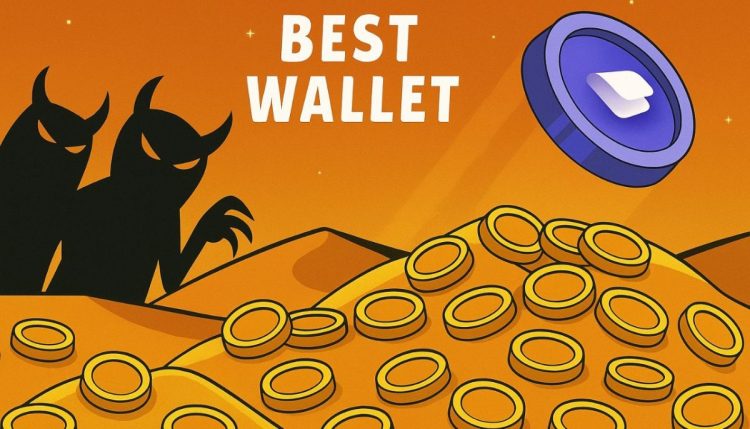Reason to trust

How Our News is Made
Strict editorial policy that focuses on accuracy, relevance, and impartiality
Ad discliamer
Morbi pretium leo et nisl aliquam mollis. Quisque arcu lorem, ultricies quis pellentesque nec, ullamcorper eu odio.

Congressman Steve Stockman of the 36th District of Texas is embracing digital currency. He made himself known in the bitcoin space at the end of last year when he began accepting bitcoin donations for a Senate campaign.
Last night at the New York City Bitcoin Center, Representative Stockman brought a copy of a bill he’s planning to introduce to the 113th Congress (second session) on the topic of virtual currencies.
Entitled “To change the tax status of virtual currencies from property to currency”, the bill (formally called the Virtual Currency Tax Reform Act) seeks to change how the Internal Revenue Service and other authoritative agencies in the United States views virtual currencies.
As you may recall, the IRS released guidance not long ago indicating that bitcoin and other virtual currency users classify their holdings as property as opposed to currency. For users, this has become rather problematic primarily because by the rules, users would have to keep track of all of their transactions and calculate gains/losses at the end of the year.
To say that would be a hassle and cumbersome is an understatement.
“We salute Congressman Stockman for making good on his promise to support digital currencies like Bitcoin,” said Nick Spanos, NYC Bitcoin Center founder.
“The Congressman displayed an interest in Bitcoin’s path-breaking, job-creating technology early on. On behalf of the entire digital currency community who have a stake in this nascent industry’s growth and its normalization into the economy, Bitcoin Center NYC thanks Congressman Stockman for leading the charge amid what often seems like conspicuous silence on the matter,” he continued.
Virtual Currency Tax Reform Act
“This is a nascent industry. Along with 3-D printers and nanotubes, cryptocurrency is the future,” said Representative Stockman. “We need to encourage it, not discourage it. There is risk associated with every budding industry in America.”
The proposed legislation has not yet been given a number.


























Actually, what is needed is to leave it as property but add an exemption for the first $X0,000 of gain, which is what other countries are doing, particularly in Europe. That way it can effectively function as a currency, but investors who go long also get favorable tax treatment.
Which is exactly why our government wants to declare it currency.
We created this technology, not them. What right do they have to label and tax it?
Article I, Section 8, Clause I of the United States Constitution
Article I, Section 9, Clause 5 provides a further limitation:
“No Tax or Duty shall be laid on Articles exported from any State.”
Bitcoins are exported from the state where they were mined, to the state they are purchased in.
There isn’t much recent case law using that clause, but there is enough to invalidate that argument. There is enough authority to tax any part of the purchase….
This would be a capital gains (or income) tax, not an export duty.
American’s can’t move and magically avoid taxation.
You all disregard:
Article 1, Section. 10.
“No State shall…..make any Thing but gold and silver Coin a Tender in Payment of Debts..”
A corrolary of this is, IF gold and silver Coin is NOT the only Tender in Payment of Debts, you do NOT live in one of the several States.
Since this is true, where do you live?
Not quite… no state may make any thing but gold and silver coin a tender in payment of debts, but the federal government may. The idea was to prevent a repeat of the proliferation of state-backed currencies under the Articles of Confederation to pay off debts, in which bad money drove out good.
Show me where the federal government was given the authority. Where in the Constitution is any authority given to COIN anything else? Nowhere is the authority to print paper as money.
The reason gold and silver NOTES were allowed by the SCOTUS is they were considered warehouse receipts, as stated on the bills “deposited in the treasury”. As such they were negotiable instruments.
All lawful ” money” has always been redeemable in either gold or silver.
As for the authority to print paper, http://en.wikipedia.org/wiki/Legal_Tender_Cases
The Necessary and Proper Clause, no matter whether you think it’s over-used, could only possibly exist to mean that a power doesn’t have to be explicitly mentioned as long as it serves an enumerated power (in this case, the power to borrow).
Only the states must issue gold or silver. Even under an originalist reading of the Constitution, article 1 section 8 puts no restriction on what the federal government may make coin out of.
Your thinking is flawed.
“The Necessary and Proper Clause, no matter whether you think it’s over-used, could only possibly exist to mean that a power doesn’t have to be explicitly mentioned as long as it serves an enumerated power (in this case, the power to borrow).
The power to borrow has nothing to do with printing paper currency. Besides that, the “money” borrowed was in gold or silver not paper.
“Only the states must issue gold or silver.”
Did you purposely misquote the Constitution? It says nothing like the states’ MUST ISSUE but that the states’ not MAKE anything other than gold or silver tender.
This country has a federal, NOT national, government and individual governments of the several states. The federal government’s authority over the states is limited and the federal government’s authority over the several states’ citizens is even more limited.
Are you saying that even though the Constitution explicitly bars the states from making anything other than gold or silver legal tender that the federal government can by edict, passing an act, order them to accept other tender?
So, the Congress can amend the Constitution by passing an act?
The only areas where Congress is almost all powerful is the District of Columbia, possessions and territories.
My corollary; “IF gold and silver Coin is NOT the only tender in Payment of Debts, you do NOT live in one of the several States” is valid.
So where do you live? You, and all current Americans, live in a political subdivision of the District of Columbia, per the Buck Act.
As an aside, the “money” we use today while it is “legal tender” it is not “lawful tender”. Know the difference?
The “money” today is fiat money, Currency that a government has declared to be legal tender, but is not backed by a physical commodity. As a former head of the Federal Reserve, a private corporation, stated, our currency is backed by the faith and credit of the American people.
“The power to borrow has nothing to do with printing paper currency.”
Well, not according to the Legal Tender cases. The bills are essentially promissory notes collateralized by money (coins, gold, bank credit, etc.) or Treasury debt.
“Did you purposely misquote the Constitution? It says nothing like the states’ MUST ISSUE but that the states’ not MAKE anything other than gold or silver tender.”
I omitted what I thought was obvious. “Only the states must issue gold or silver [if they want to pay debts in their own currencies].”
“The federal government’s authority over the states is limited and the federal government’s authority over the several states’ citizens is even more limited.”
But where the federal government is pursuing an authorized power, the Supremacy Clause gives it… supremacy.
“As an aside, the “money” we use today while it is “legal tender” it is not “lawful tender”. Know the difference?”
I think you mean “lawful money”. If that’s the case, then yes… But the Supreme Court appears to disagree with you about it not being “lawful money”. See: http://law.justia.com/cases/federal/appellate-courts/F2/524/629/430631/
“As a former head of the Federal Reserve, a private corporation, stated, our currency is backed by the faith and credit of the American people.”
That much is true (except for the private corporation part). Our currency is backed by the idea that you’ll be able to exchange it for roughly known quantities of goods and services or bank credit in the future. That depends on markets and how much faith other people have in the dollar.
Again, are you saying that Congress lawfully amended the Constitution by passing the Legal Tender acts? Perhaps you should look at what really occured during the War Between the States.
Notice that 524 F.2d 629: Mobley M. Milam, Appellant, v. United States of America et al., Appellees occurs after said war and the court amended the Constitution by adding “paper”. The Framers of the Constitution were smart enough to put “coin and print” insted of just “coin” if that was the intent.
The WBtS effectively destroyed the existing uSA and substituted a legal fiction called the USA, or the United States.
Please read “A Patriot’s Thoughts” along with the supporting articles at cfhabeck.blogspot.
No, I’m saying that the Supreme Court has said that no amendment is necessary. The power to issue bills of credit is necessary and proper in pursuit of the power to borrow, and that is what dollar bills technically are. It’s no coincidence that short-term Treasury debt instruments are ‘bills’, and longer-term ones are ‘notes’.
I’m sorry, but that site is… dense with crazy. More than I can handle at the moment.
“I’m sorry, but that site is… dense with crazy”
It is if you can not think for yourself.
Dollar bills are not bills of credit, they are fiat money which can never be paid back.
“It is if you can not think for yourself.”
…or if you think its interpretations of quoted passages from law are stretched beyond belief. If you’re saying that my interpretation seems to jibe with what the courts say and the vast majority of rational people understand, then I guess guilty as charged.
“Dollar bills are not bills of credit, they are fiat money which can never be paid back.”
It’s both. They’re bills of credit backed by the assets of the Federal Reserve, and fiat money because they’ve been declared legal tender (and lawful money) by Congress and the courts. There is no need, however, to ever “pay them back”.
Please tell me what the assets of the Federal Reserve are?
And no they are not lawful money only legal tender.
‘There is no need, however, to ever “pay them back”.’
The “money” is borrowed and backed by nothing. It’s not that there is no need to pay then back, it’s that i tis not possible to pay them back. Why are we paying interest on the money? We ar enor borrowing from our selves, we are borrowing from a corporation that is held by other banks and private individuals. There are no “assets” behind them but the interest and capital are guaranteed by every American’s possessions.
The Fed’s balance sheet is here:
http://www.federalreserve.gov/releases/h41/current/h41.htm
As you can see, it’s mostly Treasury notes and bonds (borrowings of the U.S. government), followed by mortgage-backed securities (borrowings of individuals who financed houses).
It’s curious that you say the paper notes are borrowed, and yet are arguing that they are not bills of credit. They are demand notes given to our creditors. But there is no need to “pay them back” unless the Fed wants to contract the money supply, which it shouldn’t for long in an economy with a general upward trend. But if they did, for some reason, want to purchase all Federal Reserve notes and burn them or hand them back to Treasury (presumably after a move to some other currency), they would just have to sell off a little over a quarter of their assets.
We’re not paying interest on the money itself, of course, we’re paying interest on the assets purchased with the money, which was created and put into circulation for virtually nothing. Out of this interest the Fed pays for its running costs, then by law returns the rest back to Treasury, leaving the cost to us being just the cost of operating the Federal Reserve System.
As for who we’re borrowing from, we don’t borrow directly from the Fed. Treasury sells debt on the open market, then the Fed purchases it on the open market when it wants to circulate more money. If the Fed weren’t purchasing it, it would be owned by private individuals and (mostly) banks anyway, so what’s the issue?
But the Fed isn’t a private corporation. The idea that it’s “as federal as Federal Express” is nonsense. The Fed has its charter determined by acts of Congress, has the majority of its board selected by the President and confirmed by the Senate, is required by law to have its Chair testify before Congress twice a year, and (the big one) is required to turn over all its profits to the Treasury. Confusion comes from three places: First, the courts have held that the District banks, who carry out its operations, may be held legally liable as private entities for _some_ purposes, and federal entities for others. This does not mean that the system itself or the Board of Governors is private. Second, the Presidents of District banks (who get a minority vote on monetary policy) are selected in part by area banks and other community members, in order to address local concerns (and in part by the Governors). This does not confer ‘ownership’, only a voice in monetary policy decisions. Third, member banks are required to purchase a specified number of ‘shares’, returning a specified dividend. This is compensation for the fact that the banks are required to hold a minimum of reserves at the Fed, and also does not confer ownership in any way, unlike stock in private corporations. They can’t be bought or sold on the private market, and don’t give the District voters any more input .
If bitcoin gains were treated like currency up to $200/transaction, that gain would be exempt from taxation. Just sayin’